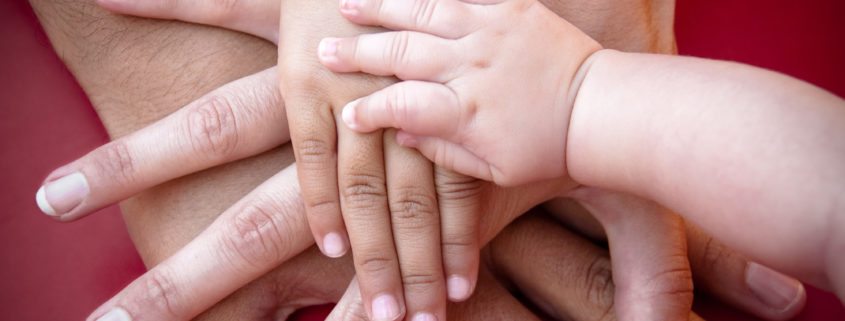
Open Adoption Versus Closed Adoption in New Jersey
During the 1900’s, many states began sealing adoption records to protect the privacy of new adoptive families. Closed adoption, in which a child’s birth and adoptive parents do not know one another’s names or contact information, gradually became the norm in the United States. New Jersey joined this trend in 1941. Between 1941 and 2017, the only way to open sealed adoption records in New Jersey was to obtain a court order. This often posed difficulties for adoptees wishing to learn about their family history, as well as for birth parents wishing to know how their child was faring in life. It has been especially problematic for adoptive families needing to know a child’s history for medical reasons.
In recent years there has been a movement toward greater openness in adoption. As the stigma of having a child out of wedlock has decreased, more birth parents are expressing a desire to stay in contact with their child in some fashion. They may not be equipped to raise the child, but they also do not want to give up all possibility of knowing how the child is doing. The idea of going through life without some way of letting the child know whether or not they are open to future contact can be profoundly unsettling to birth parents. Many adoptive families are sensitive to these issues. They understand that giving a child up for adoption is often a heartbreakingly difficult decision, and that they have the power to make that decision a bit easier. Adoptive parents are also attuned to the probability that their growing adopted child will at some point wish to gain information about their social, historical and biological roots.
“Open Adoption” Has Many Different Meanings
Open adoption can be anything from the adoptive family sending the birth family an occasional update and photo, to the adoptive family actually granting the birth family regular visitation with the child. In the majority of private adoptions, there is now some communication between the two families for at least some period of time following the adoption. While actual visitation is more common when a relative, close friend, or step-family adopts a child, birth and adoptive families who begin as strangers also sometimes work out such an arrangement during the adoption process.
Access to Adoptees’ Original Birth Certificates
A new law, effective in January of 2017, grants adults born in New Jersey and adopted as children the right to obtain uncertified, long-form copies of their original birth certificates from the New Jersey Department of Health, Office of Vital Statistics and Registry (the State Registrar). Their adoptive parents; legal guardians or other legal representatives; adult direct descendants, siblings and spouses; and state and federal agencies with official reasons, can also gain access to the certificates.
The new adoption records system implemented by the change in law permits birth parents to file a document indicating their preference regarding future contact with a child they have surrendered for adoption. The stated preference can be for direct contact, contact through an intermediary, or no contact, and it can be changed at any time. Birth parents submitting a contact preference form must simultaneously submit updated medical, cultural, and social family history information. Those indicating a preference for no contact are required to update the family history information every 10 years prior to reaching age 40, and every five years after that.
Birth parents in adoptions completed prior to August 1, 2015 who wished to maintain their anonymity were able to do so by filing a request for redaction of their name and other identifying information prior to December 31, 2016. They can rescind this request at any time. For all adoptions completed after August 1, 2015, long-form birth certificates without redaction of birth parent’s identities are available to those granted access under the new law.
While adoptive parents now have access to their child’s birth information from the beginning of the adoption, children will not have access until reaching age 18. Birth parents can express a preference regarding contact, but they do not have the legal right to control whether or not contact occurs. The amount of contact a birth parent continues to have with a minor child is ultimately left to the discretion of the adoptive parents.
Adoption Agreements
Whether you are a birth parent or an adoptive parent, putting your adoption agreement into writing is a good idea. A written agreement can memorialize intentions and provide a foundation for an arrangement to proceed smoothly. All parties must be aware, however, that New Jersey courts will not currently enforce such agreements. Once parental rights are transferred to the adoptive parents, they have the final say about who is in the child’s life until the child reaches the age of majority.
At all stages of adoption, adoptive parents and birth parents need separate legal representation from attorneys with knowledge and experience in adoption. If you or someone you know needs legal assistance, we can help. Our family law attorneys can provide dedicated and reliable legal representation. For information and advice regarding any adoption-related issue, schedule an initial consultation today. Secure your family’s future. Call: (888) 888-0919.

